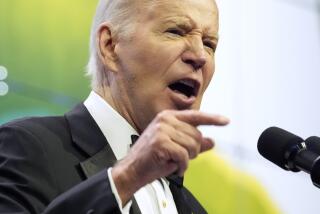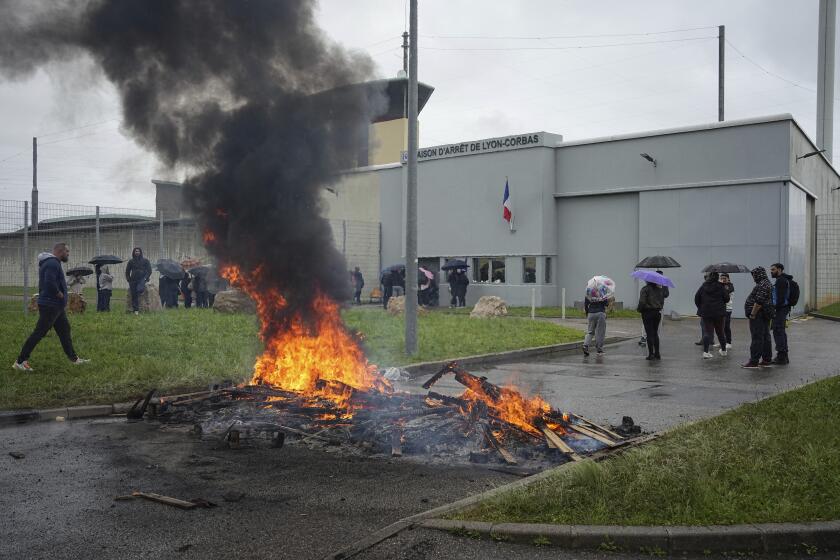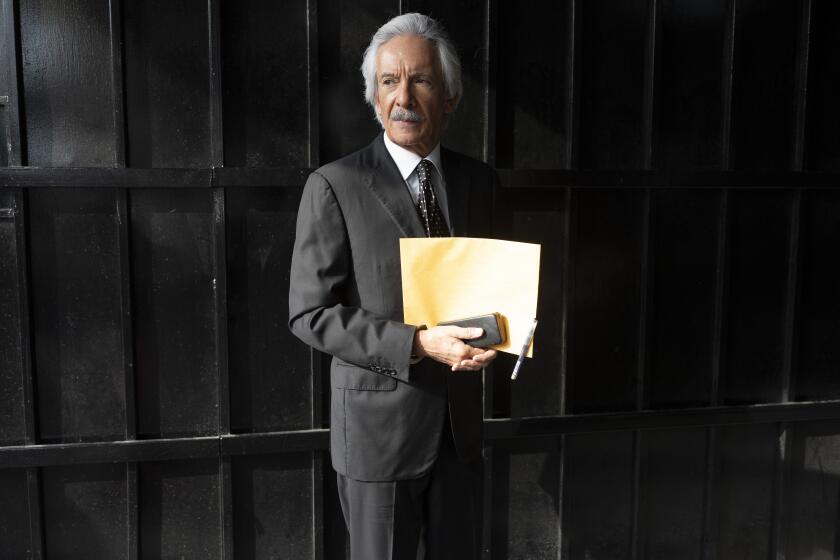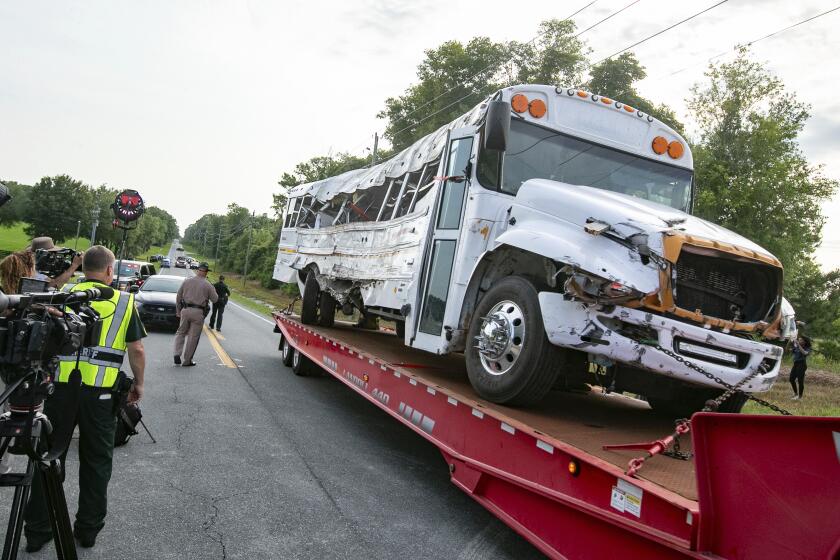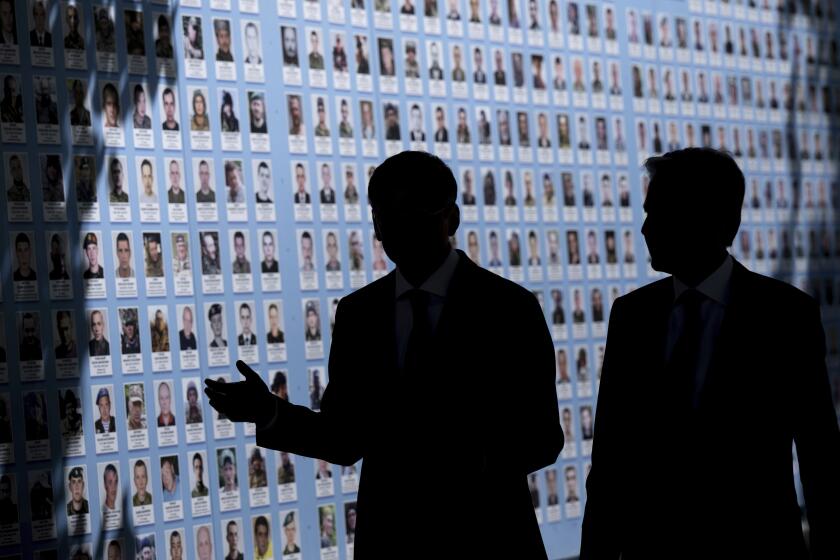Freed Afghans Decry Guantanamo Conditions
Two longtime detainees at the U.S.-run Guantanamo Bay prison in Cuba who were returned home here Wednesday said that they were pleased about their release but that many at the prison were suffering from poor treatment that was harming their mental health.
About 180 prisoners have been on a hunger strike for more than two weeks to protest the treatment and the lack of information about their cases, the two men said.
The Pentagon denies any systematic abuse of prisoners at Guantanamo Bay, and officials say the vast majority of the abuse allegations have been discredited. Two recent military investigations, however, found isolated cases of physical and mental abuse.
One investigation substantiated five cases of Koran desecration by U.S. military personnel at the base.
The Defense Department recently has released or transferred eight detainees, including one to Sudan, three to Saudi Arabia, one to Jordan and one to the government of Spain.
Afghan detainees Moheb Ullah Barakzai and Habib Rasool were handed over to the government through an initiative to repatriate noncriminal combatants and insurgents and re-integrate them into Afghan society.
“We are happy to be released but have to bring to you the voices of hundreds of our brothers that are becoming mentally ill in the prison,” said Barakzai, 24. “They haven’t been in touch with their families for years and have no idea what is going on with their cases.”
Barakzai says he was picked up by the U.S. military in November 2001 during a sweep of the southern province of Kandahar, a former stronghold of the Taliban regime. A few months later, he was transferred to Guantanamo.
He did not deny being part of the Taliban’s militia, but Afghan officials say he was probably in the lower ranks.
“Congratulations for being released, and now it is time for you to go back to your homes and live peaceful lives,” Sibghatullah Mojaddidi, the head of Afghanistan’s peace and reconciliation commission, told the men.
The gray-haired Rasool said he was never involved with the Taliban and was picked up mistakenly by U.S. forces.
“I have been held all of this time with no real charges,” said Rasool, who is from the southeastern province of Khowst. “That is why I am free now, but I paid a harsh price for their mistake.”
Rasool said prisoners at Guantanamo had not had access to doctors and medicine. He and Barakzai also complained about interrogation tactics they say disrespected Islam.
“Guantanamo is a prison that no Muslim should ever be in,” Rasool said. “The Americans would take our Korans from us while we were reading them and throw them across the room in an effort to anger us.”
Rasool and Barakzai received letters from the Afghan government recognizing their release.
More than 500 detainees arrested in the Bush administration’s declared war on terrorism remain in the high-profile facility. Most are Afghan, Saudi and Pakistani nationals picked up in Afghanistan for allegedly having links to the Al Qaeda terrorist network and the Taliban, which was ousted from power in Afghanistan in late 2001.
Human rights organizations have criticized the administration for denying them status as prisoners of war under the Geneva Convention.
*
Times staff writer Mark Mazzetti in Washington contributed to this report.
More to Read
Start your day right
Sign up for Essential California for news, features and recommendations from the L.A. Times and beyond in your inbox six days a week.
You may occasionally receive promotional content from the Los Angeles Times.


